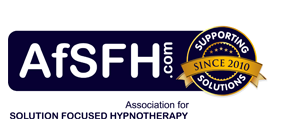Written by Trevor Eddolls
I love being a hypnotherapist and helping people achieve their goals, and one of the things I enjoy is talking about the brain. I am often surprised by how common some brain misconceptions are. So, I thought I’d start the year by debunking some brain myths that I hear.
People are left or right-brained
There are two hemispheres to your brain and people think that left-brained people are analytical and logical, and right-brained people are creative and expressive. The truth is that certain types of task and thinking tend to be more associated with one hemisphere or the other, no one is fully right-brained or left-brained. In fact, the corpus callosum connects both sides pf the brain and information passes between them all the time. So, people use all their brain.
People use only ten percent of their brains
We use all the areas of the brain perform some type of function. PET and fMRI scans show that much of the brain is being used even during simple tasks. Why would evolution create a brain so big that 90 percent of it wasn’t used? If we did use only ten percent then brain injuries to the other 90 percent wouldn’t have such a significant impact.
The brain is hard-wired
Brain are organized in a standard way, and some parts are specialized for certain tasks. But neuroplasticity shows that parts of the brain that normally have one function, can, instead, be used for a different function, eg following a brain injury.
Brain damage is permanent
In fact, a person's ability to recover from brain damage depends upon the severity and the location of the injury. The human brain is plastic! Neuroplasticity is the ability of the brain to change throughout an individual’s life, including after an injury.
Adults can’t grow new brain cells
In 1998, a Swedish team showed that new brain cells form in the hippocampus, a structure involved in storing memories. In 2014, another Swedish team found that the striatum, a brain region involved in motor control and cognition, produces new neurons throughout life. Neurogenesis is the name for creating new brain cells.
People see the world as it is
We aren’t passive recipients of external information reaching our brains through our sensory organs. In fact, brains actively search for patterns (while at the same time ignoring any details we aren’t expecting. We have only a limited amount of attention that we can pay to anything – hence why multitasking ends badly. How we see the world is not just built of objective observations layered together in a logical way, it’s also driven by expectations and interpretations.
People learn best when the teaching style matches their learning style
Tests in 2006, at the University of California, found that students didn’t perform any better on a test when given instructions in their preferred style. Similarly, a 2009 review paper found no studies upholding the claim that teaching and learning styles should match. It’s best to use repetition, testing, and spacing out learning sessions.
Humans have the biggest brains
A human adult brain weighs around three pounds and is about 15 centimetres in length. Sperm whales have the largest brain, weighing 18 pounds! An elephant’s brain is around 11 pounds. Could it be that humans have the largest brain size in proportion to body size? 'Fraid not. The animal with the largest body size to brain ratio is the shrew – its brain makes up around 10 percent of its body mass.
Memories are precise, detailed, and persistent
When a significant event happens, people remember exactly where they were, what they were doing, who they were with, and what they saw or heard. But like all memories, they decay over time. Each time a memory is accessed, details are lost and other information is added. That’s why eye-witness accounts vary so much.
Brains are like computers
No!
So goodbye myths about the brain. Hello neuro-scientific facts.
Trevor Eddolls
iTech-Ed Hypnotherapy
Chippenham, Wilts SN14 0TL
01249 443256
trevor@ihypno.biz
ihypno.biz
@ihypno2004
fb.com/iHypno2004/
